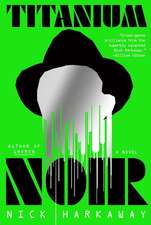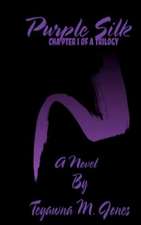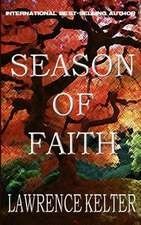Angelmaker
Autor Nick Harkawayen Limba Engleză Hardback – 29 feb 2012
Vezi toate premiile Carte premiată
L.A. Times Book Prize (2012)
From the acclaimed author of The Gone-Away World, blistering gangster noir meets howling absurdist comedy as the forces of good square off against the forces of evil, and only an unassuming clockwork repairman and an octogenarian former superspy can save the world from total destruction.
Joe Spork spends his days fixing antique clocks. The son of infamous London criminal Mathew “Tommy Gun” Spork, he has turned his back on his family’s mobster history and aims to live a quiet life. That orderly existence is suddenly upended when Joe activates a particularly unusual clockwork mechanism. His client, Edie Banister, is more than the kindly old lady she appears to be—she’s a retired international secret agent. And the device? It’s a 1950s doomsday machine. Having triggered it, Joe now faces the wrath of both the British government and a diabolical South Asian dictator who is also Edie’s old arch-nemesis. On the upside, Joe’s got a girl: a bold receptionist named Polly whose smarts, savvy and sex appeal may be just what he needs. With Joe’s once-quiet world suddenly overrun by mad monks, psychopathic serial killers, scientific geniuses and threats to the future of conscious life in the universe, he realizes that the only way to survive is to muster the courage to fight, help Edie complete a mission she abandoned years ago and pick up his father’s old gun . . .
| Toate formatele și edițiile | Preț | Express |
|---|---|---|
| Paperback (2) | 62.21 lei 22-33 zile | +27.27 lei 6-12 zile |
| CORNERSTONE – 3 ian 2013 | 62.21 lei 22-33 zile | +27.27 lei 6-12 zile |
| VINTAGE BOOKS – 22 oct 2012 | 122.93 lei 6-8 săpt. |
Preț: 172.31 lei
Nou
Puncte Express: 258
Preț estimativ în valută:
32.97€ • 35.26$ • 27.49£
32.97€ • 35.26$ • 27.49£
Carte indisponibilă temporar
Doresc să fiu notificat când acest titlu va fi disponibil:
Se trimite...
Preluare comenzi: 021 569.72.76
Specificații
ISBN-13: 9780307595959
ISBN-10: 0307595951
Pagini: 496
Dimensiuni: 165 x 242 x 43 mm
Greutate: 0.74 kg
Ediția:New.
Editura: Knopf Publishing Group
ISBN-10: 0307595951
Pagini: 496
Dimensiuni: 165 x 242 x 43 mm
Greutate: 0.74 kg
Ediția:New.
Editura: Knopf Publishing Group
Notă biografică
Nick Harkaway was born in Cornwall in 1972. He studied philosophy, sociology and politics at Clare College, Cambridge, and then worked in the film industry. His fiction debut was The Gone-Away World. He lives in London with his wife and daughter.
www.nickharkaway.com
www.nickharkaway.com
Recenzii
“It’s hard to put a finger on exactly why Angelmaker is one of the year’s best books. Know this, though: it is.”
—Niall Alexander, Tor.com
“Greetings to Joe Spork, the book world’s newest hero. He springs from the fertile, absurdist imagination of Harkaway in his follow-up to The Gone-Away World.”
—Billy Heller, New York Post
“Brilliant, wholly original, and a major-league hoot.”
—Adam Woog, The Seattle Times
“[Harkaway] manages to write surrealist adventure novels that feel both urgent and relevant. His novels are fun to read without seeming particularly frivolous, and beneath all the derring-do and shenanigans, there’s a low thrum of anxiety: everything and everyone you love could disappear at any moment. . . . Angelmaker is a truly impressive achievement.”
—Emily St. John Mandel, The Millions
“A big, gleefully absurd, huggable bear of a novel. . . . A pleasantly roomy book, a grand old manor house of a novel that sprawls and stretches. . . . In passage after passage, Angelmaker opens up, making room for the reader, until we aren’t merely empathizing with Joe Spork’s plight but feeling it keenly. . . . All the more reason to applaud Harkaway for creating Joe Spork: not only like us but likable, a hero who serves not as a dark mirror but as a funhouse one.”
—Glen Weldon, Slate
“[A] gloriously uninhibited romp of a novel. . . . Harkaway has managed to recapture the lighthearted brio of an earlier age of precision entertainment, when the world was deemed to be perpetually teetering on the brink of Armageddon but always capable of being snatched back to safety with a quip, a wink, [and] a judo chop.”
—Paul Di Filippo, Barnes and Noble Review
“A lot of books are fun to read for the plot; a smaller percentage display this artful mastery of the language. And precious few manage to do both. Angelmaker, the second novel by British writer Nick Harkaway, falls into that last category. . . . This is not the sort of book I zip through, despite wanting to know what happens next. It’s the sort of book you want to let steep in your brain a bit before you take another taste.”
—Jonathan Liu, Wired.com’s GeekDad blog
“An intricate and brilliant piece of escapism, tipping its hat to the twisting plots of John Buchan and H Rider Haggard, the goggles-and-gauntlets Victoriana of the steampunk movement and the labyrinthine secret Londons of Peter Ackroyd and Iain Sinclair, while maintaining an originality, humour and verve all its author’s own. . . . Angelmaker must have been huge fun to write, and it is huge fun to read. . . . A fantasy espionage novel stuffed with energetic, elegant writing that bowls the reader along while reflecting profitably on the trends of the times. Gleefully nostalgic and firmly modern, hand-on-heart and tongue-in-cheek, this is as far as it could be from the wearied tropes that dominate so much of fantasy and SF. I can’t wait to see what Harkaway does next.”
—Tim Martin, Daily Telegraph, (5 out of 5 stars)
“Harkaway’s celebrated debut, The Gone-Away World . . . was really just a warm up act—a prodigiously talented novelist stretching muscles that few other writers even possess—for this tour de force Dickensian bravura and genre-bending splendor. . . . This is a marvelous book, both sublimely intricate and compulsively readable.”
—Bill Ott, Booklist (starred review)
“Harkaway keeps us guessing, traveling the edges between fantasy, sci-fi, the detective novel, pomo fiction and a good old-fashioned comedy of the sort that Jerome K. Jerome might have written had he had a ticking thingy instead of a boat as his prop. . . . His tale stands comparison to Haruki Murakami’s 1Q84.”
—Kirkus (starred review)
“A long, wild journey through a London dream world. . . . With its bizarre scenarios and feverish wordiness, its huge cast of British eccentrics and the ark forces of paranoia and totalitarianism lurking everywhere, this novel recalls the works of Martin Amis and Will Self. Immense fun and quite exciting.”
—Jim Coan, Library Journal
“A puzzle box of a novel as fascinating as the clockwork bees it contains, filled with intrigue, espionage and creative use of trains. As if that were not enough to win my literary affection, Harkaway went and gave me a raging crush on a fictional lawyer.”
—Erin Morgenstern, author of The Night Circus
“You are in for a treat, sort of like Dickens meets Mervyn Peake in a modern Mother London. The very best sort of odd.”
—William Gibson, author of Zero History
“Nick Harkaway's novel is like a fractal: when examined at any scale, it reveals itself to be complex, fine-structured and ornately beautiful. And just like a fractal, all of this complexity and beauty derives from a powerful and elegant underlying idea.”
—Charles Yu, author of How to Live Safely in a Science Fictional Universe
“This brilliant, boundless mad genius of a book runs on its own frenetic energy, and bursts with infinite wit, inventive ambition and damn fine storytelling. You finish reading it in gape-mouthed awe and breathless admiration, having experienced something very special indeed.”
—Matt Haig, author of The Radleys
“A joyously sprawling, elaborately plotted, endlessly entertaining novel filled with adventure, comedy, espionage, and romance, Angelmaker also deals with intriguing questions of free will and the nature of truth without stopping to take a breath. As if the book is made of clockwork, the pages turn themselves.”
—Dexter Palmer, author of The Dream of Perpetual Motion
Praise from the U.K.
“A magnificent, literary, post-pulp triumph. . . . Angelmaker is an entertaining tour-de-force that demands to be adored.”
—David Barnett, The Independent
“An ambitious, crowded, restless caper, cleverly told and utterly immune to précis. . . . A solid work of modern fantasy fiction.”
—James Purdon, The Observer
“Angelmaker is one of the most enjoyable books I’ve read in ages. . . . A joyful display of reckless, delightful invention, on a par with the rocket-powered novels of Neal Stephenson, if in rather more ironically diffident English form. Ideas come zinging in from all corners, and do so with linguistic verve and tremendous humour. . . . Once it gets going, it’s brilliantly entertaining, and the last hundred pages are pure, unhinged delight. What a splendid ride.”
—Patrick Ness, The Guardian
“[The Gone-Away World] was a work of such glorious, exhaustive excess a part of me wondered if Harkaway would actually write again. I am profoundly glad that he has: Angelmaker is every bit as entertaining and imaginative. . . . Effervescent and witty. . . . Harkaway manages the ideal blend of paying homage to a very British sense of decency and fair play, while at the same time idolising the rule-breakers.”
—Stuart Kelly, Scotsman on Sunday
“[Harkaway is] a rare kind of writer. . . . There is something elegantly nostalgic about Angelmaker, whether in the derring-do adventure of it, or the loving invocations of artisanship. . . . [Yet] it’s a gleefully post-modern book in its weaving together of genres with imagery from comic books, film and TV, and its richly imagined setting of a London with underground passages and secret markets.”
—Susan Mansfield, The Scotsman
—Niall Alexander, Tor.com
“Greetings to Joe Spork, the book world’s newest hero. He springs from the fertile, absurdist imagination of Harkaway in his follow-up to The Gone-Away World.”
—Billy Heller, New York Post
“Brilliant, wholly original, and a major-league hoot.”
—Adam Woog, The Seattle Times
“[Harkaway] manages to write surrealist adventure novels that feel both urgent and relevant. His novels are fun to read without seeming particularly frivolous, and beneath all the derring-do and shenanigans, there’s a low thrum of anxiety: everything and everyone you love could disappear at any moment. . . . Angelmaker is a truly impressive achievement.”
—Emily St. John Mandel, The Millions
“A big, gleefully absurd, huggable bear of a novel. . . . A pleasantly roomy book, a grand old manor house of a novel that sprawls and stretches. . . . In passage after passage, Angelmaker opens up, making room for the reader, until we aren’t merely empathizing with Joe Spork’s plight but feeling it keenly. . . . All the more reason to applaud Harkaway for creating Joe Spork: not only like us but likable, a hero who serves not as a dark mirror but as a funhouse one.”
—Glen Weldon, Slate
“[A] gloriously uninhibited romp of a novel. . . . Harkaway has managed to recapture the lighthearted brio of an earlier age of precision entertainment, when the world was deemed to be perpetually teetering on the brink of Armageddon but always capable of being snatched back to safety with a quip, a wink, [and] a judo chop.”
—Paul Di Filippo, Barnes and Noble Review
“A lot of books are fun to read for the plot; a smaller percentage display this artful mastery of the language. And precious few manage to do both. Angelmaker, the second novel by British writer Nick Harkaway, falls into that last category. . . . This is not the sort of book I zip through, despite wanting to know what happens next. It’s the sort of book you want to let steep in your brain a bit before you take another taste.”
—Jonathan Liu, Wired.com’s GeekDad blog
“An intricate and brilliant piece of escapism, tipping its hat to the twisting plots of John Buchan and H Rider Haggard, the goggles-and-gauntlets Victoriana of the steampunk movement and the labyrinthine secret Londons of Peter Ackroyd and Iain Sinclair, while maintaining an originality, humour and verve all its author’s own. . . . Angelmaker must have been huge fun to write, and it is huge fun to read. . . . A fantasy espionage novel stuffed with energetic, elegant writing that bowls the reader along while reflecting profitably on the trends of the times. Gleefully nostalgic and firmly modern, hand-on-heart and tongue-in-cheek, this is as far as it could be from the wearied tropes that dominate so much of fantasy and SF. I can’t wait to see what Harkaway does next.”
—Tim Martin, Daily Telegraph, (5 out of 5 stars)
“Harkaway’s celebrated debut, The Gone-Away World . . . was really just a warm up act—a prodigiously talented novelist stretching muscles that few other writers even possess—for this tour de force Dickensian bravura and genre-bending splendor. . . . This is a marvelous book, both sublimely intricate and compulsively readable.”
—Bill Ott, Booklist (starred review)
“Harkaway keeps us guessing, traveling the edges between fantasy, sci-fi, the detective novel, pomo fiction and a good old-fashioned comedy of the sort that Jerome K. Jerome might have written had he had a ticking thingy instead of a boat as his prop. . . . His tale stands comparison to Haruki Murakami’s 1Q84.”
—Kirkus (starred review)
“A long, wild journey through a London dream world. . . . With its bizarre scenarios and feverish wordiness, its huge cast of British eccentrics and the ark forces of paranoia and totalitarianism lurking everywhere, this novel recalls the works of Martin Amis and Will Self. Immense fun and quite exciting.”
—Jim Coan, Library Journal
“A puzzle box of a novel as fascinating as the clockwork bees it contains, filled with intrigue, espionage and creative use of trains. As if that were not enough to win my literary affection, Harkaway went and gave me a raging crush on a fictional lawyer.”
—Erin Morgenstern, author of The Night Circus
“You are in for a treat, sort of like Dickens meets Mervyn Peake in a modern Mother London. The very best sort of odd.”
—William Gibson, author of Zero History
“Nick Harkaway's novel is like a fractal: when examined at any scale, it reveals itself to be complex, fine-structured and ornately beautiful. And just like a fractal, all of this complexity and beauty derives from a powerful and elegant underlying idea.”
—Charles Yu, author of How to Live Safely in a Science Fictional Universe
“This brilliant, boundless mad genius of a book runs on its own frenetic energy, and bursts with infinite wit, inventive ambition and damn fine storytelling. You finish reading it in gape-mouthed awe and breathless admiration, having experienced something very special indeed.”
—Matt Haig, author of The Radleys
“A joyously sprawling, elaborately plotted, endlessly entertaining novel filled with adventure, comedy, espionage, and romance, Angelmaker also deals with intriguing questions of free will and the nature of truth without stopping to take a breath. As if the book is made of clockwork, the pages turn themselves.”
—Dexter Palmer, author of The Dream of Perpetual Motion
Praise from the U.K.
“A magnificent, literary, post-pulp triumph. . . . Angelmaker is an entertaining tour-de-force that demands to be adored.”
—David Barnett, The Independent
“An ambitious, crowded, restless caper, cleverly told and utterly immune to précis. . . . A solid work of modern fantasy fiction.”
—James Purdon, The Observer
“Angelmaker is one of the most enjoyable books I’ve read in ages. . . . A joyful display of reckless, delightful invention, on a par with the rocket-powered novels of Neal Stephenson, if in rather more ironically diffident English form. Ideas come zinging in from all corners, and do so with linguistic verve and tremendous humour. . . . Once it gets going, it’s brilliantly entertaining, and the last hundred pages are pure, unhinged delight. What a splendid ride.”
—Patrick Ness, The Guardian
“[The Gone-Away World] was a work of such glorious, exhaustive excess a part of me wondered if Harkaway would actually write again. I am profoundly glad that he has: Angelmaker is every bit as entertaining and imaginative. . . . Effervescent and witty. . . . Harkaway manages the ideal blend of paying homage to a very British sense of decency and fair play, while at the same time idolising the rule-breakers.”
—Stuart Kelly, Scotsman on Sunday
“[Harkaway is] a rare kind of writer. . . . There is something elegantly nostalgic about Angelmaker, whether in the derring-do adventure of it, or the loving invocations of artisanship. . . . [Yet] it’s a gleefully post-modern book in its weaving together of genres with imagery from comic books, film and TV, and its richly imagined setting of a London with underground passages and secret markets.”
—Susan Mansfield, The Scotsman
Descriere
From the author of the international bestseller "The Gone-Away World" comes a new riveting action spy thriller, blistering gangster noir, and howling absurdist comedy: a propulsively entertaining tale about a mobster's son and a retired secret agent who team up to save the world.
Extras
I.
At seven fifteen a.m., his bedroom slightly colder than the vacuum of space, Joshua Joseph Spork wears a longish leather coat and a pair of his father’s golfing socks. Papa Spork was not a natural golfer. Among other differences, natural golfers do not acquire their socks by hijacking a lorryload destined for St. Andrews. It isn’t done. Golf is a religion of patience. Socks come and socks go, and the wise golfer waits, sees the pair he wants, and buys it without fuss. The notion that he might put a Thompson sub-machine gun in the face of the burly Glaswegian driver, and tell him to quit the cab or adorn it . . . well. A man who does that is never going to get his handicap down below the teens.
The upside is that Joe doesn’t think of these socks as belonging to Papa Spork. They’re just one of two thousand pairs he inherited when his father passed on to the great bunker in the sky, contents of a lock-up off Brick Lane. He returned as much of the swag as he could—it was a weird, motley collection, very appropriate to Papa Spork’s somewhat eccentric life of crime—and found himself left with several suitcases of personal effects, family Bibles and albums, some bits and bobs his father apparently stole from his father, and a few pairs of socks the chairman of St. Andrews suggested he keep as a memento.
“I appreciate it can’t have been easy, doing this,” the chairman said over the phone. “Old wounds and so on.”
“Really, I’m just embarrassed.”
“Good Lord, don’t be. Bad enough that the sins of the fathers shall descend and all that, without feeling embarrassed about it. My father was in Bomber Command. Helped plan the firebombing of Dresden. Can you imagine? Pinching socks is rather benign, eh?”
“I suppose so.”
“Dresden was during the war, of course, so I suppose they thought it had to be done. Jolly heroic, no doubt. But I’ve seen photographs. Have you?”
“No.”
“Try not to, I should. They’ll stay with you. But if ever you do, for some godforsaken reason, it might make you feel better to be wearing a pair of lurid Argyles. I’m putting a few in a parcel. If it will salve your guilt, I shall choose the absolute nastiest ones.”
“Oh, yes, all right. Thank you.”
“I fly myself, you know. Civilian. I used to love it, but recently I can’t help but see firebombs falling. So I’ve sort of given up. Rather a shame, really.”
“Yes, it is.”
There’s a pause while the chairman considers the possibility that he may have revealed rather more of himself than he had intended.
“Right then. It’ll be the chartreuse. I quite fancy a pair of those myself, to wear next time I visit the old bugger up at Hawley Churchyard. ‘Look here, you frightful old sod,’ I shall tell him, ‘where you persuaded yourself it was absolutely vital that we immolate a city full of civilians, other men’s fathers restricted themselves to stealing ugly socks.’ That ought to show him, eh?”
“I suppose so.”
So on his feet now are the fruits of this curious exchange, and very welcome between his unpedicured soles and the icy floor.
The leather coat, meanwhile, is a precaution against attack. He does own a dressing gown, or rather, a toweling bathrobe, but while it’s more cosy to get into, it’s also more vulnerable. Joe Spork inhabits a warehouse space above his workshop—his late grandfather’s workshop—in a dingy, silent bit of London down by the river. The march of progress has passed it by because the views are grey and angular and the place smells strongly of riverbank, so the whole enormous building notionally belongs to him, though it is, alas, somewhat entailed to banks and lenders. Mathew—this being the name of his lamentable dad—had a relaxed attitude to paper debt; money was something you could always steal more of.
Speaking of debts, he wonders sometimes—when he contemplates the high days and the dark days of his time as the heir of crime—whether Mathew ever killed anyone. Or, indeed, whether he killed a multitude. Mobsters, after all, are given to arguing with one another in rather bloody ways, and the outcomes of these discussions are often bodies draped like wet cloth over barstools and behind the wheels of cars. Is there a secret graveyard somewhere, or a pig farm, where the consequences of his father’s breezy amorality are left to their final rest? And if there is, what liability does his son inherit on that score?
In reality, the ground floor is entirely given over to Joe’s workshop and saleroom. It’s high and mysterious, with things under dust sheets and—best of all—wrapped in thick black plastic and taped up in the far corner “to treat the woodworm.” Of recent days these objects are mostly nothing more than a couple of trestles or benches arranged to look significant when buyers come by, but some are the copper-bottomed real thing—timepieces, music boxes, and best of all: hand-made mechanical automata, painted and carved and cast when a computer was a fellow who could count without reference to his fingers.
It’s impossible, from within, not to know where the warehouse is. The smell of old London whispers up through the damp boards of the sale room, carrying with it traces of river, silt and mulch, but by some fillip of design and aging wood it never becomes obnoxious. The light from the window slots, high above ground level and glazed with that cross-wired glass for security, falls at the moment on no fewer than five Edinburgh long-case clocks, two pianolas, and one remarkable object which is either a mechanised rocking horse or something more outré for which Joe will have to find a rather racy sort of buyer. These grand prizes are surrounded by lesser ephemera and common-or-garden stock: crank-handle telephones, gramophones and curiosities. And there, on a plinth, is the Death Clock.
It’s just a piece of Victorian tat, really. A looming skeleton in a cowl drives a chariot from right to left, so that—to the western European observer, used to reading from left to right—he is coming to meet us. He has his scythe slung conveniently across his back for easy reaping, and a scrawny steed with an evil expression pulls the thing onward, ever onward. The facing wheel is a black clock with very slender bone hands. It has no chime; the message is perhaps that time passes without punctuation, but passes all the same. Joe’s grandfather, in his will, commended it to his heir for “special consideration”—the mechanism is very clever, motivated by atmospheric fluctuation—but the infant Joe was petrified of it, and the adolescent resented its immutable, morbid promise. Even now—particularly now, when thirty years of age is visible in his rear-view mirror and forty glowers at him from down the road ahead, now that his skin heals a little more slowly than it used to from solder burn and nicks and pinks, and his stomach is less a washboard and more a comfy if solid bench—Joe avoids looking at it.
The Death Clock also guards his only shameful secret, a minor, practical concession to the past and the financial necessities. In the deepest shadows of the warehouse, next to the leaky part of the wall and covered in a grimy dustsheet, are six old slot machines—genuine one-armed bandits—which he is refurbishing for an old acquaintance named Jorge. Jorge (“Yooorrr-geh! With passion like Pasternak!” he tells new acquaintances) runs a number of low dives which feature gambling and other vices as their main attractions, and Joe’s job is to maintain these traditional machines—which now dispense tokens for high-value amounts and intimate services rather than mere pennies—and to bugger them systematically so that they pay out on rare occasions or according to Jorge’s personal instruction. The price of continuity in the clockworking business is minor compromise.
The floor above—the living area, where Joe has a bed and some old wooden wardrobes big enough to conceal a battleship—is a beautiful space. It has broad, arched windows and mellowed red-brick walls which look out onto the river on one side, and on the other an urban landscape of stores and markets, depots and back offices, lock-ups, car dealerships, Customs pounds, and one vile square of green-grey grass which is protected by some indelible ordinance and thus must be allowed to fester where it lies.
All very fine, but the warehouse has recently acquired one serious irritant: a cat. At some time, one mooring two hundred yards up was allowed to go to a houseboat, on which lives a very sweet, very poor family called Watson. Griff and Abbie are a brace of mildly paranoid anarchists, deeply allergic to paperwork and employment on conscientious grounds. There’s a curious courage to them both: they believe in a political reality which is utterly terrifying, and they’re fighting it. Joe is never sure whether they’re mad or just alarmingly and uncompromisingly incapable of self-delusion.
In any case, he gives any spare clockwork toys he has to the Watsons, and eats dinner with them once in a while to make sure they’re still alive. They in their turn share with him vegetables from their allotment and keep an eye on the warehouse if he goes away for the weekend. The cat (Joe thinks of it as ‘the Parasite’) adopted them some months ago and now rules the houseboat by a combination of adept political and emotional pressure brought to bear through the delighted Watson children and a psychotic approach to the rodent population, which earns the approval of Mr. and Mrs. W. Sadly, the Parasite has identified the warehouse as its next home, if once it can destroy or evict the present owner, of whom it does not approve.
Joe peers into the piece of burnished brass he uses as a shaving mirror. He found it here when he took possession, a riveted panel from something bigger, and he likes the warmth of it. Glass mirrors are green, and make your image look sick and sad. He doesn’t want to be the person he sees reflected in a glass mirror. Instead, here’s this warm, genial bloke, a little unkempt, but—if not wealthy—at least healthy and fairly wise.
Joe is a big man, with wide shoulders and hips. His bones are heavy. He has a strong face, and his skull is proud beneath the skin. Passably handsome, perhaps, but not delicate. Unlike Papa Spork, who had his father’s genes, and looked like a flamenco dancer, Joe is most unfairly designed by nature to resemble a guy who works the door at the rougher kind of bar. He gets it from his mother’s side: Harriet Spork is a narrow creature, but that owes more to religion and meals high in fibre than it does to genetics. Her bones are the bones of a Cumbrian meat-packer and his Dorset yeoman wife. Nature intended in her design a hearty life of toil, open fires and plump old age attended by a brood of sun-touched brats. That she chose instead to be a singer and more latterly a nun is evidence of a certain submerged cussedness, or possibly a consequence of the strange upheavals of the twentieth century, which made rural motherhood look, at least for a while, like an admission of defeat.
From somewhere in the warehouse, there’s a curiously suffused silence. A hunting silence: the Parasite, having declared war almost immediately upon making his acquaintance, enters each morning via the window that Joe props open to stop the place getting stuffy when the central heating comes on, and ascends to balance on the white, moulded frame around the kitchen door. When he passes underneath, it drops onto his shoulders, extends its claws, and slides down his back in an attempt to peel him like an apple. The leather jacket and, alas, the skin beneath—because the first time this happened he was wearing only a pajama shirt—carry the scars.
Today, tiring of a.m. guerilla war—and sensitive to the possibility that while he is presently single, he may one day bring an actual woman to this place, and she may wish not to be scalped by an irate feline when she sashays off to make tea, perhaps with one of his shirts thrown around her shoulders and the hem brushing the tops of her elegant legs and revealing the narrowest sliver of buttock—Joe has chosen to escalate the situation. Late last night, he applied a thin layer of Vaseline to the coping. He tries not to reflect on the nature of a life whose high point is an adversarial relationship with an entity possessing the same approximate reasoning and emotional alertness as a milk bottle.
Ah. That whisper is a silken tail brushing the mug tree with its friendly, mismatched china. That creak means the floorboard by the wall, that pitter-patter is the animal jumping from the dresser . . . and that remarkable, outraged sound must be the noise it makes bouncing off the far wall after sliding all along the coping, followed by . . . yes. An undignified thump as it hits the floor. Joe wanders into his kitchen. The Parasite stares at him from the corner, eyes spilling over with mutiny and hate.
“Primate,” Joe tells it, waggling his hands. “Tool user. Opposable thumbs.”
The Parasite glowers, and stalks out.
Having thus inaugurated Victory Over The Cat Day, it is in the nature of his world that Joe Spork should immediately be overtaken on the ladder of mammalian supremacy by a dog.
Premii
- L.A. Times Book Prize Finalist, 2012


















